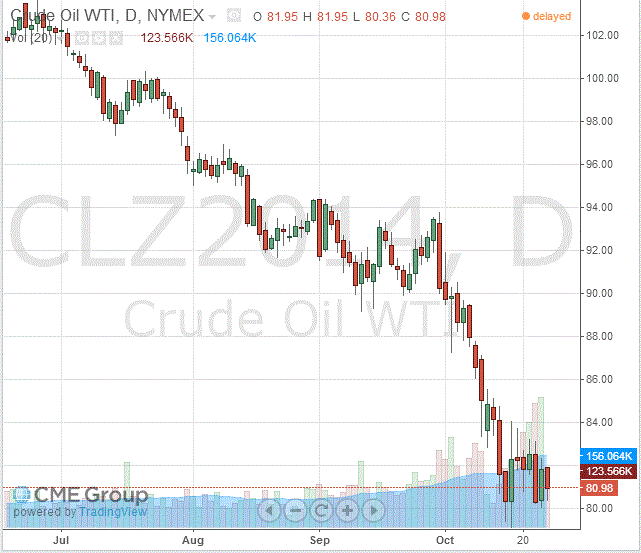- Oil: an overview of the market situation
Market news
Oil: an overview of the market situation
Oil prices fell markedly, offsetting earlier rise, as markets got some certainty oil policy of Saudi Arabia. The course of trade affect the assumptions of investors that the decline in exports of oil from Saudi Arabia is not a signal to reduce oil production in the country. Some analysts believe that the decline in oil supplies from Saudi Arabia due to increased volume of oil remaining in the country, due to increased domestic demand. Recall yesterday it became known to reduce the supply of oil from the country in September to 328,000 barrels a day - up to 9.36 million barrels per day.
"Saudi Arabia does not reduce production. Volumes supplied to the oil market are great, and the price of oil will have a tendency to decrease, "- said the manager Tyche Capital Advisors Tariq Zahir.
Pressure on prices also had reports that a New York physician was confirmed Ebola after his return from West Africa, where he provided medical care to patients. The first confirmed case of the disease in the largest city in the United States called the recent concerns about the spread of the virus, putting pressure mainly on risky assets.
Concerns about the weakening global demand, as well as signs that the Organization of Petroleum Exporting Countries will not cut production to support oil quotations, also pressured in recent weeks. Oil production in the OPEC reached in September two-year high of 31 million barrels per day, due to the increase in production in Iraq and Libya. Some market analysts believe that only a reduction in the volume of production in the oil cartel will be able to stop the decline in prices.
The cost of the November futures for the American light crude oil WTI (Light Sweet Crude Oil) fell to $ 80.98 a barrel on the New York Mercantile Exchange (NYMEX).
The price of December futures for North Sea Brent crude oil mixture has dropped to $ 86.45 a barrel on the London exchange ICE Futures Europe.
